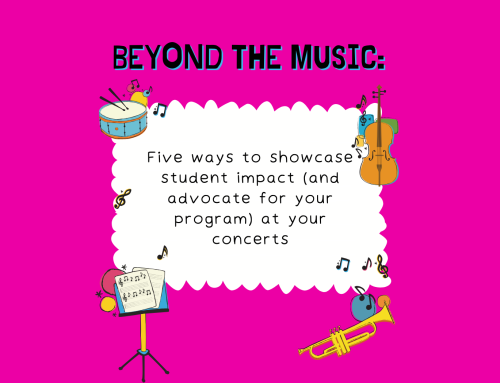Sometimes research explores new and interesting ideas people have never thought of. And sometimes, research seems to explore areas that, as musicians, we already know to be true. But we need “Well duh!” research just as much as we need “I’ve never thought of that!” research. This month’s research very much falls into the “Well duh!” column.
Table of Contents
Dissertations are Research Too
At the beginning of my PhD program at the University of Florida I was lucky to join a large cohort that I could lean on for support, research ideas, and most importantly, friendships. Honestly, it was one of the main things that made going back to school as a full-time student less scary.
I had the pleasure of watching Dr. Josh Davis progress through his dissertation research from idea to completion. Dissertations take time and the process can be long and intimidating. However, seeing someone successfully navigate this process left me hopeful that there was a light at the end of the tunnel for me too.
And while I love reading the different research people conduct for their dissertations, those documents are hundreds and hundreds of pages that most people (aside from the author and their committee) never read from beginning to end. The results of this hard work can often benefit teachers in classrooms, but the trick is to know where to look. Spoiler alert: skip to the implications chapter at the end.
How Expert Teachers Teach
Like most PhD students, Dr. Josh Davis came into his program with different ideas about what he was interested in researching. But he eventually settled on researching the process of teaching students to (a) have strong aural skills, (b) be able to use aural skills to play in tune, and (c) trust that throughout their time in music class, it is possible to learn to play in tune both individually and as a part of a group.
Dr. Davis figured that teachers with strong performance records both nationally and within their states would likely have some process in place for teaching intonation, and therefore would be able to maintain strong programs. So he designed a study to let him see exactly what that process looked like in action.
What He Found
The three middle school band teachers who Dr. Davis observed and interviewed all talked about their reliance on mentors, the benefits of bringing experts into their classrooms, and the benefits of professional development. The act of bringing in performers and conductors to work with students allowed the expert teachers to learn right along with their students and then implement what worked in their classrooms in their own way.
These three expert teachers also spent quality time on fundamentals at the beginning of the semester, even if it meant they were teaching aural skills and tone production skills for the first few months of instruction. What Dr. Davis took away from his research was to invest quality time early on in fundamentals…and then don’t stop focusing on those fundamentals. This time spent on fundamentals helped students to not only sound better but to also spend less time thinking about their tone when learning new skills like rhythm, expanding their range, and playing new music.
So What? Why Should You Care?
Young teachers (and even some experienced teachers) tend to stay in survival mode throughout a school year. Teachers trying to survive in their classrooms are worried about the “nuts and bolts” topics like rhythm, technique, and reading – the things we spend most of our time on in methods classes during our preservice teacher education. However, the expert teachers all discussed their emergence from survival mode and their work to finding opportunities to dig deeper musically with their students.
These teachers even found that practicing strong fundamentals with tone production and aural skills from the beginning of the year helped their students move faster through the more technical skills later in the year. This consistent focus on fundamentals prepares students to become the kinds of musicians we want them to be – engaged, motivated, and independent.
And honestly, with as many teachers who are navigating dividing their time among online, hybrid, and in-person classes…who couldn’t use an excuse to focus more time on musicality and less time on rhythm and technique?
Using Research to Inform Teaching Practices
Dr. Davis mentioned in our conversation that, even though these teachers had strong performance records, they all admitted that they still had room to grow in terms of adding creativity into their classrooms. But the work that they’ve already done, and their openness to trying new things in their classrooms means that they’re already on a trajectory to adding and implementing new ideas with their students. The fundamentals of aural skills, singing, rhythmic proficiency, and tone production are all there. Now it is up to the teachers to see how far they can stretch their students in other areas.
The potential for growth when teachers listen to each of their students, help them develop their own musicality, and engage an entire group of them in active listening is just…well, the possibilities are endless.
As a result of his dissertation research, Dr. Davis now knows that he currently spends significantly more time with his collegiate ensemble at Louisiana College. His research has impacted his teaching, and I know he’s not alone. So, if you have research, let’s talk.
Do you have research to contribute to this column? Submit with this link so that I can share what you’ve created in a future column.
To get in touch with the author of this dissertation:
Joshua Davis, PhD
Director of Bands/Assistant Professor of Music
Louisiana College
[email protected]




Leave A Comment